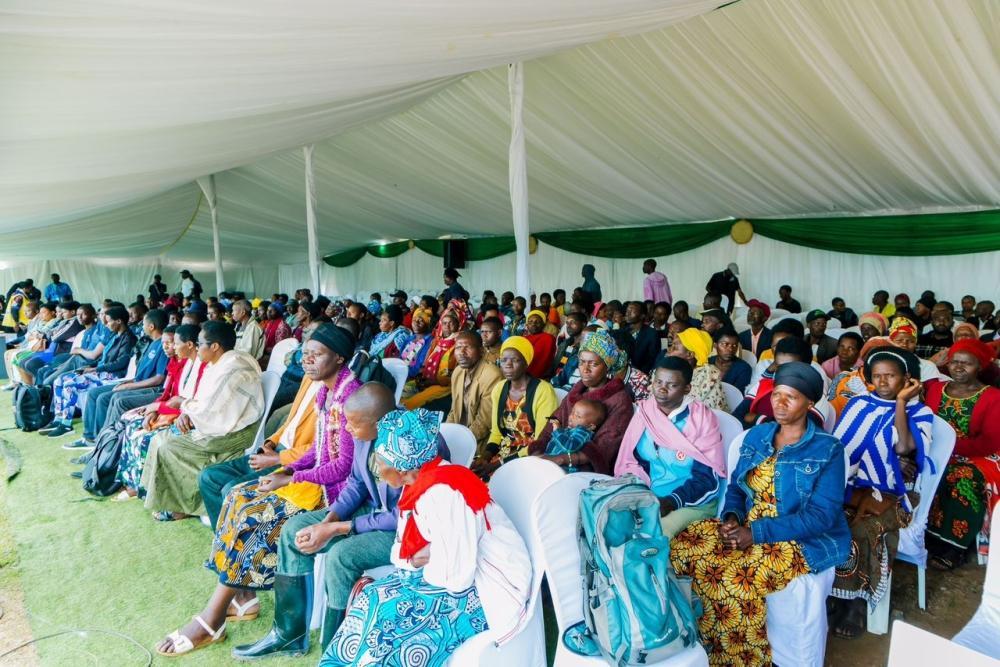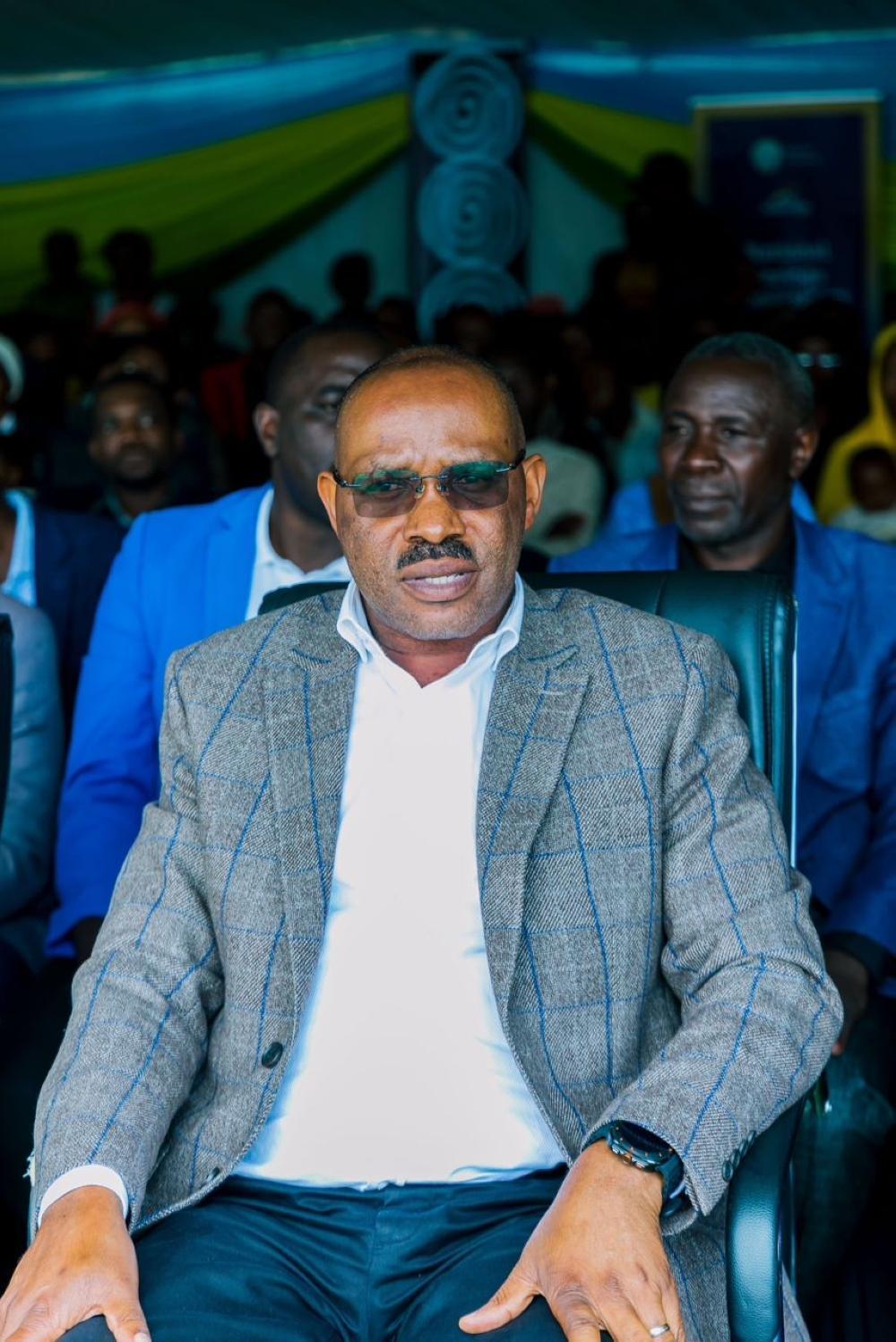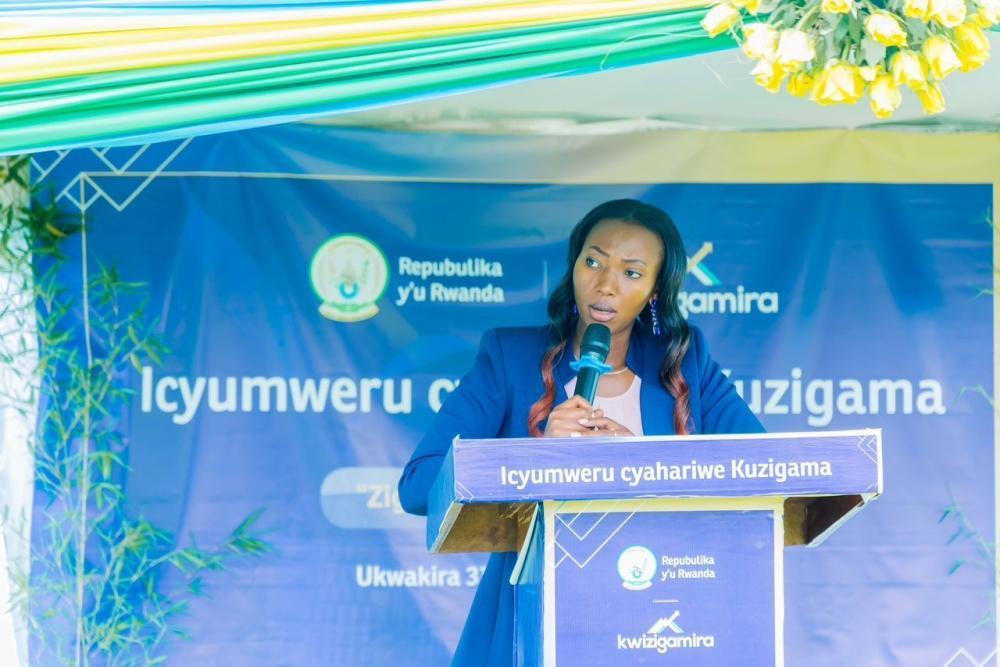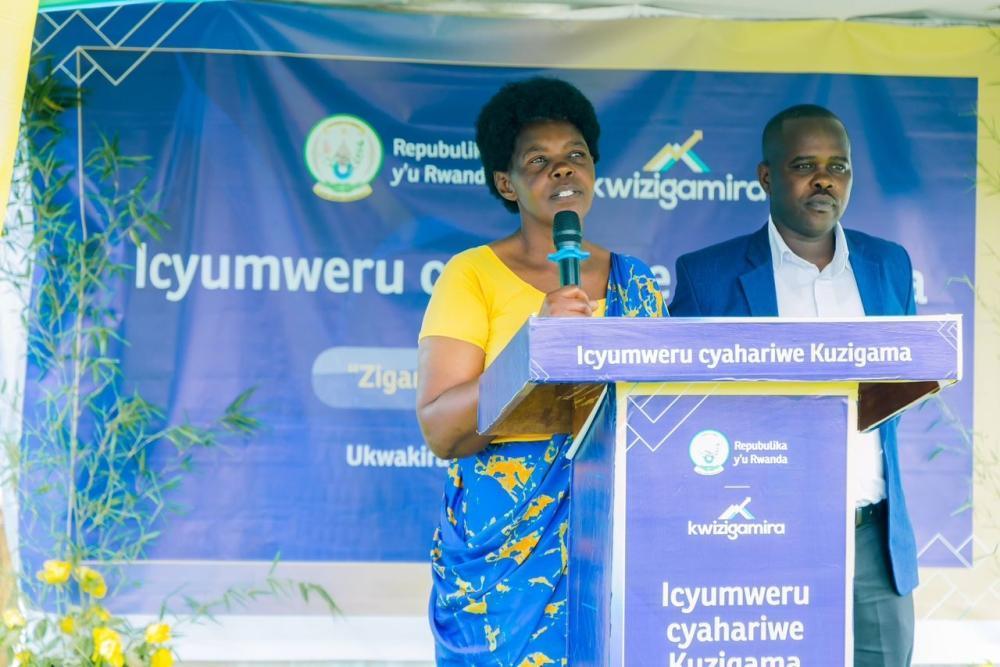Africa-Press – Rwanda. Officials have urged Rwandans to embrace a culture of saving, noting that individual savings not only secure personal financial stability but also contribute to national economic growth.
This was said during the launch of National Saving Mobilisation Week and International Saving Day on October 31 in Gicumbi District, an event organised by the Ministry of Finance and Economic Planning.
Cyrille Hategekimana, Director General in charge of Banking and Non-Banking Services at the Ministry of Finance and Economic Planning.
Cyrille Hategekimana, Director General in charge of Banking and Non-Banking Services in the ministry, said Rwanda’s savings rate is currently stable but remains below the national target.
“Currently, we are at 14.4 per cent of the Gross Domestic Product (GDP), and our goal is to reach 25.9 per cent of GDP by the year 2029,” he said.
He stressed that Rwandans need to adopt a mindset that treats saving as a necessary part of a broader financial plan.
“This requires all our efforts as Rwandans to develop a culture of saving, and to understand that saving is not about keeping what remains after spending, but rather, it should be part of one’s overall plan for using their income,” he said.
Hategekimana noted that individual savings are reflected in the country’s overall economic indicators.
Parfaite Uwera, Vice Mayor in charge of Economic Development
Parfaite Uwera, Vice Mayor in charge of Economic Development in Gicumbi District, described saving as the foundation of sustainable development.
“Saving is the foundation of development. If we look at our country, the infrastructure we see in Kigali and even here in Gicumbi, all of this has been achieved because of saving,” Uwera said.
She added that those who initiated these projects and worked with financial institutions were able to save, access loans, and successfully implement development projects.
Uwera encouraged rural residents to take advantage of financial services, including SACCOs, banking agents, and Ejo Heza mobile savings scheme.
“You can start with a small amount, save consistently, and gradually grow. By working with financial institutions, you build trust and eventually qualify for loans that can help you start income-generating projects,” she said.
According to Uwera, Gicumbi District has made significant progress in promoting a savings culture.
Residents have saved over Rwf2.3 billion through Ejo Heza scheme alone. Nearly 2,000 savings and credit groups, including cooperatives and tontines known as ibimina, are actively engaging citizens in financial activities.
Marie-Chantal Kamali, a local resident in Gicumbi District
Marie-Chantal Kamali, a local resident, had not understood the Ejo Heza concept until she witnessed the int her father’s savings.
“My father started saving Rwf1,500 every month. At first, I didn’t think it would make much difference, but over time, it proved very helpful. When he passed away, he had saved Rwf50,600, and the interest earned was Rwf30,800,” she said.
Kamali added that Ejo Heza ensured the money remained accessible after her father’s death.
“In my case, we received a total of Rwf1.25 million. Saving through Ejo Heza has allowed me to build on my father’s savings and improve my family’s financial situation,” she said.
“Now, everyone in my family with a national ID is part of Ejo Heza. It doesn’t require anything complicated; it’s something you can manage directly from your phone,” Kamali said.
For More News And Analysis About Rwanda Follow Africa-Press









